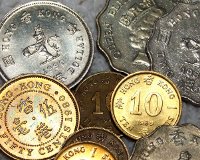The good news is that Hong Kong is not one of the top ten most expensive world cities for expats, at least according to Economist Intelligence Unit which provides regular reports on cost of living in the world’s major cities. The bad news is it’s very close. In fact, a different assessment by Mercer rates Hong Kong as 9th in the world for costs for expats behind Tokyo, Zurich, Moscow, Luanda, N’Djamena, and several others. These two agencies and various others assess cost of living by looking at the prices that an expat family will pay for typical goods and services compared to similar items in other key cities.
Often some of these costs will be subsidized by a sponsoring employer, so it’s valuable to dig deeper into the cost elements broken into several categories rather than look just at a single number. The US Department of State provides a frequently updated assessment of typical living costs and publishes cost of living allowance (COLA) data used for calculating additional compensation given to employees working in US posts in foreign countries. It’s a handy reference with current information so it is frequently used by US and other companies as a starting point in calculating allowances for expat employees.One of the cost categories is a composite figure representing spendable income separate from housing, education, international travel, etc. Specifically this category includes food (consumed at home and in restaurants), tobacco and alcohol, clothing, personal care items, furnishings, household goods, medical services, recreation, public transportation, vehicle-related expenses, and household help.
Using the US State Department reference, this spendable income is calculated as 1/3 to 1/2 of base pay (with an increasing fraction for larger family size). Then a factor is determined for the increased (or decreased) expenses for these items in the foreign assignment location compared to US costs. Hong Kong is currently assessed at 42% higher than Washington DC.
Here’s a sample calculation: For a family of four with base pay of $139,000, the spendable income is determined to be $54,200. At 42%, this yields additional expected expenses for these items of $22,764. The US government, and potentially other employers, would provide that amount as a non-taxable payment along with normal compensation through the year or in a lump sum.
Education in many home countries is free (not truly free, but a non-itemized benefit of being a taxpaying citizen); however, in Hong Kong it will be an extra expense. The US State Department assessment considers the cost of the least expensive “adequate” school in the country, with adequate defined as allowing the child to enter the next higher grade at a public school in the US after completing the class in the foreign school. For Hong Kong this cost is currently assessed at $22,850 (grades K-3) to $26,550 (grade 12) per student, quite a sizable sum if your company does not provide any allowance.
Living quarters make up a very large expense, which may be highly variable depending on world and local economic conditions. In January 2013, Hong Kong annual living quarters rates were tagged by the US State Department survey at $83,200 to $109,100 for an expat without a family. This includes rent, utilities, and local taxes. With a family the range jumps to $93,500 to $114,300 (with some possible additional amounts for larger families). Take note: This is annual rent, even though it is enough to purchase a small home in many countries!
The range represents the housing allowance across the organizational pay bands of US government employees; international companies may provide allowances that support considerably higher rents. If you’re going as an unsponsored expat, be prepared to pay these amounts or compete with locals for scarce housing at lower rates.
Another important cost consideration is that of income tax accountability in Hong Kong and your home country. If you remain an employee of an international company, they may offer—or require—tax equalization that will give or take money from your compensation so that you are nominally paying the same total income tax that you would have been if you were in your home country. Tax requirements as an expat involve many complex calculations, so it’s best to get expert advice, more than can be described here.
Since you’ll have a Hong Kong ID, health care is available to you for very affordable rates as part of Hong Kong’s public health system. You may choose to use more expensive private health care. The actual out-of-pocket costs will vary greatly depending on what, if any, health care insurance you have. This will require exploration before leaving home.
Other expenses will, of course, arise for travel to and from the home country, expensive or unusual hobbies or health needs, and leisure expenses greater than normal to take advantage of the once-in-a-lifetime experience of living in Hong Kong!
Summing these costs can easily lead to greater than $100,000 in annual expenses over your current situation. The best approach to understanding the direct impact is to create a budget of current expenses and look for answers from your company on what allowances will be provided. Be sure you’re asking all the right questions so that you don’t miss out on entitlements. If you’re going on your own, don’t underestimate!

